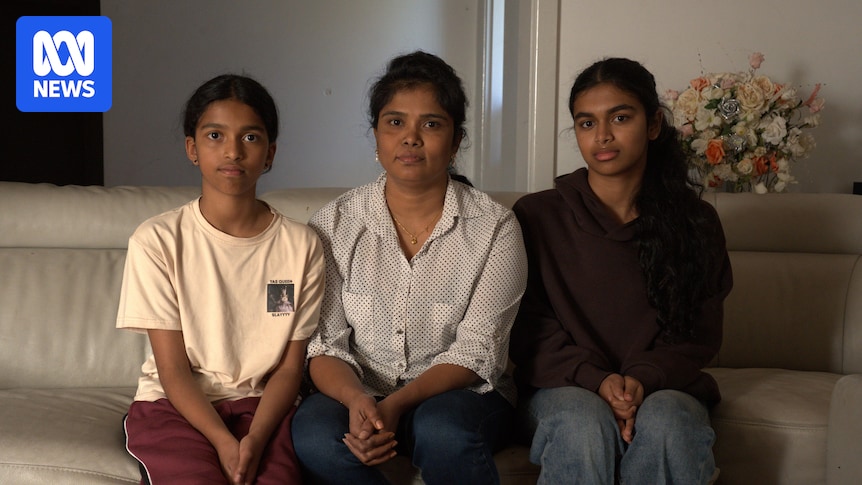
Rathy Barthlote and her family find themselves ensnared in a complex immigration predicament in Australia. Her 11-year-old daughter, Lolitta, born in the country, became a citizen at age 10, enjoying full rights. However, Barthlote, her husband, and their 16-year-old daughter, Logitha, remain asylum seekers with limited rights. They have resided in Australia since 2014, awaiting the outcome of their refugee claims.
“Their friendships, schooling, and sense of belonging are all here,” Barthlote expressed. “One child has everything, the other child is worried about her future.” The family lives under the constant shadow of deportation, a fear that affects their daily lives. “My older daughter has occasionally asked whether she would be separated from her younger sibling,” Barthlote added. “For years and years, we are in limbo, building lives on unstable ground.”
Their situation is emblematic of a broader issue affecting approximately 8,000 asylum seekers who arrived in Australia between 2012 and 2013. These individuals, whose claims were rejected under the previous government’s ‘Fast Track’ processing system, continue to live in uncertainty.
Calls for Resolution
Former Coalition immigration minister Alex Hawke has called on the current government to address the status of these asylum seekers. “People have been here a long time. And the reality of their condition is that they will be staying here,” Hawke stated. “We now have to deal with the actual reality of the situation.”
Hawke’s comments come despite the previous Coalition government’s failure to resolve the issue during its tenure. “It’s time the Labor Party committed to resolving the issues. Some of those are tricky, but a lot of them are now no longer tricky,” he remarked.
One Boat, Two Different Outcomes
The plight of Barthlote’s family is mirrored by that of Priya Nadesalingam, a Tamil asylum seeker whose case gained national attention. Both Barthlote and Nadesalingam arrived in Australia on the same boat in 2013, fleeing Sri Lanka’s civil strife. While the Nadesalingam family has since been granted permanent residency, Barthlote and many others continue to face an uncertain future.
Barthlote’s legal journey has been fraught with challenges. After her initial claim was rejected by the Immigration Assessment Authority (IAA), she successfully appealed, only to face another rejection. Her ongoing appeal has been pending since mid-2019, leaving her family in a prolonged state of limbo.
Impact on Family and Community
While awaiting a resolution, Barthlote and her husband have established a life in Melbourne’s western suburbs. Barthlote works in aged and disability care and part-time at a union, while her husband holds two jobs. Their daughter Logitha, a Year 11 student, aspires to study forensic science but faces financial barriers due to her visa status.
“She wants to have a dream but she can’t get that dream,” Barthlote lamented. On a bridging visa, Logitha would need to enroll as a foreign student, unable to access government student loans.
Uncertain Future for Many
Since coming to power, the Labor government has moved to provide a “permanent visa pathway” for around 20,000 individuals recognized as refugees under the Fast Track system. However, the fate of the remaining 8,000 asylum seekers remains unclear. The Home Affairs Minister continues to use ministerial intervention on a case-by-case basis, leaving many in uncertainty.
Sanmati Verma, legal director at the Human Rights Law Centre, criticized the current policy as “cruel” and divisive. “There is no clear rationale or consistency as to who is afforded this treatment and who is not,” Verma stated. She urged the government to recognize the contributions of long-term residents and grant them permanent visas.
The Home Affairs Department maintains that those who have exhausted all legal avenues should leave Australia voluntarily, though ministerial intervention remains an option for new, credible claims.
For Barthlote and her family, securing a future in Australia is paramount. “We are part and parcel of this community. We have no home to return to in Sri Lanka,” she concluded, highlighting the deep roots they have planted in their adopted country.







